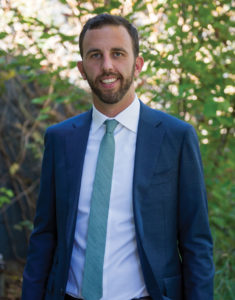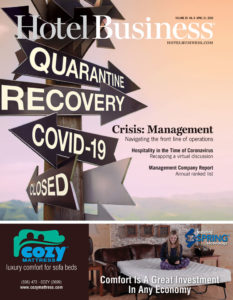 Hotel Business recently caught up with Jamie Lane, senior director, economics and forecasting for CBRE Hotels Americas, who manages CBRE’s team of economists for all property types and specializes in forecasting of the hospitality industry. Lane was recently promoted this March from senior managing economist to his current position.
Hotel Business recently caught up with Jamie Lane, senior director, economics and forecasting for CBRE Hotels Americas, who manages CBRE’s team of economists for all property types and specializes in forecasting of the hospitality industry. Lane was recently promoted this March from senior managing economist to his current position.
Since joining CBRE in 2010, Lane brings 10 years of experience in economics and consulting, now conducting custom studies for investment firms and operating companies using advanced quantitative methods and preparing research reports on contemporary real estate industry trends.
Now, more than ever, the industry is relying on research and economic forecasting, helping it to best deal with the situation at hand and plan for the future. Lane also participated in the NEXT Events, Hotel Business and InspireDesign virtual conference, “Hospitality in the Time of Coronavirus: Solutions for Our Industry,” where he gave detailed economic insight into what to expect this year and going into 2021. (See the news story on page 3 for details.)
Here, we got to know a little more about Lane’s career path and why hospitality is always at the forefront for him—as well as a little more detail on how he thinks the coronavirus pandemic will affect the hospitality industry—where it’s affecting the most, when travel will rebound and what the long-term effects of COVID-19 will be.
How have you seen the industry evolve during the decade you’ve spent at CBRE? When I started working for PKF Hospitality Research in 2010, I learned to analyze three data points: supply, demand and revenue. Since then, the granularity of the data has expanded exponentiality. We can now understand the source of each booking, the length of stay, booking pace, lead times, etc., which brings a much deeper understanding as to how and why industry performance is changing.
If you could go back to when you first began your career, what would you tell yourself? To write more, even if I was the only one to see it.
What about the industry entices you? My position as an economist at CBRE allows me to study the intersection of economics and travel, why people choose to travel and why they choose one destination over another.
What is something the industry may not know about you? Before starting to research the sharing economy, I got my first foray into the sector by hosting travelers from around the world at my house through couch surfing (the free predecessor to Airbnb).
What keeps you up at night? The biggest risk to the hotel industry has nothing to do with the economic growth, the sharing economy, OTAs, or new supply, but how long it takes the world to eradicate the COVID-19 pandemic, which even top epidemiologists can’t agree how long will persist.
The industry is facing an unprecedented situation right now with the pandemic. Who’s taking the biggest hit? We expect the impact to be greatest in gateway cities that cater to international and business travelers and that accommodate large groups for conventions and conferences, i.e., luxury, upper-upscale, and upscale properties in urban areas.
When and how do you expect the travel industry to rebound? If containment efforts are successful and people are permitted to begin traveling again by Q3, we expect a swift recovery as the fundamental reasons for travel remain strong and consumers of travel have pent-up demand to leave the house. Our outlook shows that RevPAR will almost recover to 2019 levels by 2022, but not before losing nearly $100 billion in rooms revenue alone by 2022 based on pre-COVID-19 forecasts.
How is the pandemic going to change hospitality long term? What should we prepare for? After the longest RevPAR growth cycle in history, the industry is now experiencing the largest downturn in its history. A prolonged recovery could change the perception of risk to cash flows that investors apply to hospitality assets.
Besides the pandemic, what other challenges is the industry facing right now? How should it try to overcome those? With thousands of hotels closed, any other challenges are a far second to solving the health issues and providing owners and operators the support to be able to survive this crisis and open back up. HB

